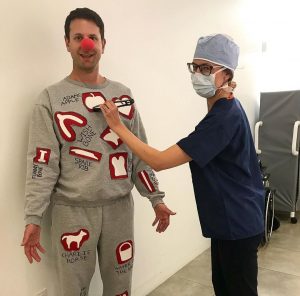Post-graduation planning: What are you going to do next?
March 9, 2017
Congratulations! You’re graduating from college, but now what do you do? Many college seniors debate going for their master’s degree or an equivalent right after getting their bachelor’s degree. Going for your masters isn’t the only option, however.
Going to graduate school depends on what you want to do. If you want to become a teacher, lawyer, doctor or any other profession that requires an advanced degree, then it’s a necessity. Earning a master’s degree is also something to ponder if you want to learn more about a particular field and if your chosen profession allows for a higher salary and more opportunities for advancement because of that degree. However, there are also reasons why you may not want to pursue graduate school. The Gerri Ripp Center for Career Development has a host of material on its website to help you with this decision. On its “Is Graduate School Right For You?” page, an advanced degree may not be if you, “are trying to delay your entry into the ‘real world,’ are clueless about your career goals, and want to stay in school longer to avoid a poor job market.”
According to the Gerri Ripp Center, you should consider working first if “you would like to get some real-world experience before investing thousands of dollars in a graduate degree or the graduate school of your choice prefers work experience (or the program does).” On the other hand, consider going to graduate school if, “you are absolutely sure you want to be a college professor, doctor, lawyer, and need a graduate degree to pursue your dream job, you have been awarded grants, fellowships, scholarships or assistantships that will pay for your education, or your study habits and mental abilities are at their peak.” In addition, it is also possible to work and attend graduate school at the same time. Although you won’t have a lot of free time, you will have a head start beginning your career and gaining work experience while continuing your education.
Iona has plenty of options for graduate school including Master of Arts (MA), Master of Science (MS), Master of Science in Education (MSEd), Master of Science in Teaching (MST) and a Master of Business Administration (MBA). Within the School of Arts & Science there are fourteen graduate programs and six advanced certificates.
Keep in mind that there are many pathways toward a master’s degree for certain programs. For example, you can either go for an MA in history, an MSEd in adolescence education in history or an MST in history. In the Hagan School of Business there are eight MBA concentrations, there is a FastTrack MBA Program that cuts ten months off the traditional length of the program in a sped up fashion, eight Master’s programs and 18 Advanced and Post-Masters Certificates.
The Rockland Graduate Center in Pearl River, N.Y. offers a variety of graduate programs in business for the MBA and the Advanced and Post-Master’s Certificates. The MA in Public Relations is offered in Rockefeller Center in New York City, the media center of the world. There are also five-year Bachelor’s/Master’s degree programs available at Iona, which include the chemistry, computer science, criminal justice, economics, English, history, mathematics and psychology programs.
Other advanced degrees include a business degree, a law degree or a medical degree. For the most part, graduate school applications consist of the admissions application, undergraduate transcripts, recommendation letters, a personal statement and a resume. The one requirement in applying to graduate school is the Graduate Admissions Test depending on the desired degree. The most common exam is the Graduate Record Examination (GRE), usually for arts and science programs, the Graduate Management Admission Test (GMAT), for business programs, the Law School Admission Test (LSAT), for law school and the Medical College Admission Test (MCAT), for medical school.
If you want to pursue something else besides graduate school or work right after college, two relevant fields are volunteer work and military service. By volunteering you can gain experience, make connections and perhaps find something that interests you for a career. College graduates with a bachelor’s degree are eligible to apply to any of the five branches of the military, Air Force, Army, Coast Guard, Marines or Navy, and be commissioned as an Officer. There are options for both active duty and reserve service but both entail completing Officer Candidate School (OCS) to gain a commission in the military.
How do you make the right choice? It ultimately comes down to what you want to do and what opportunities present themselves. The best way to figure out if you want to go to graduate school, work, do both or do something else is to evaluate what your goals are and to talk to people in the field that you are interested in going into to see how they got there.


